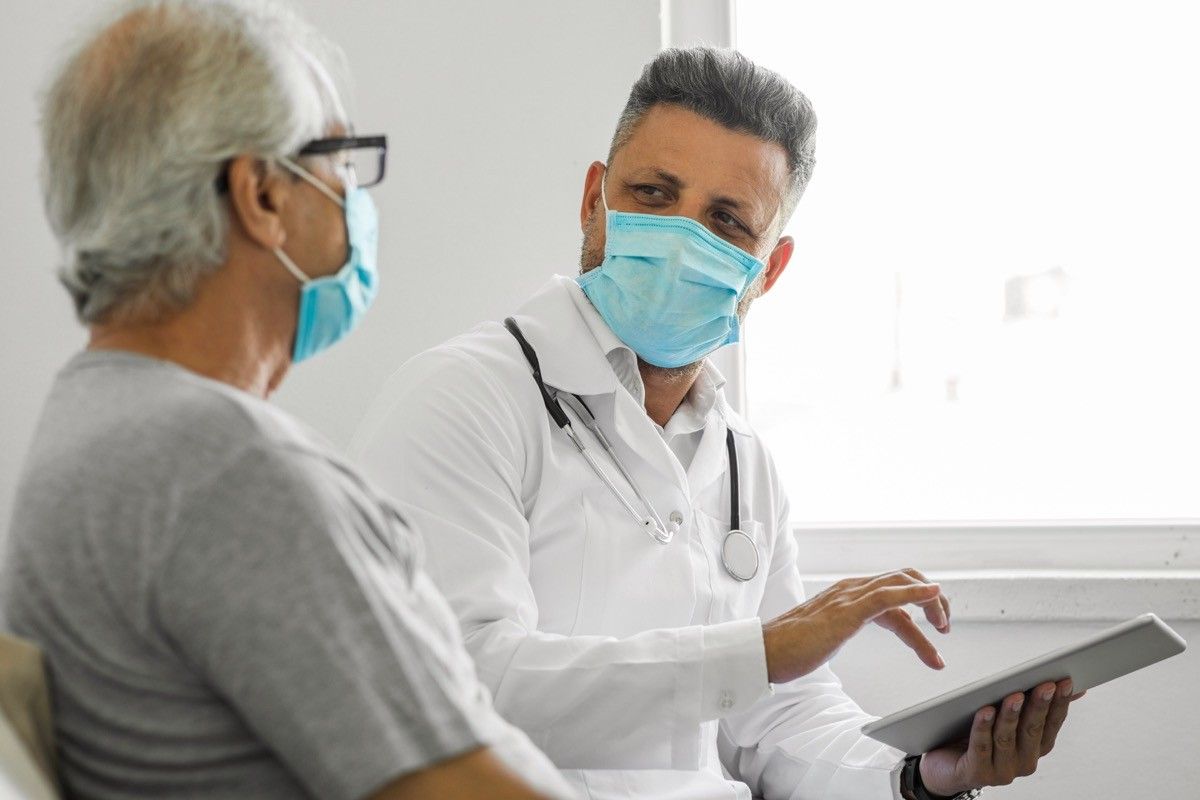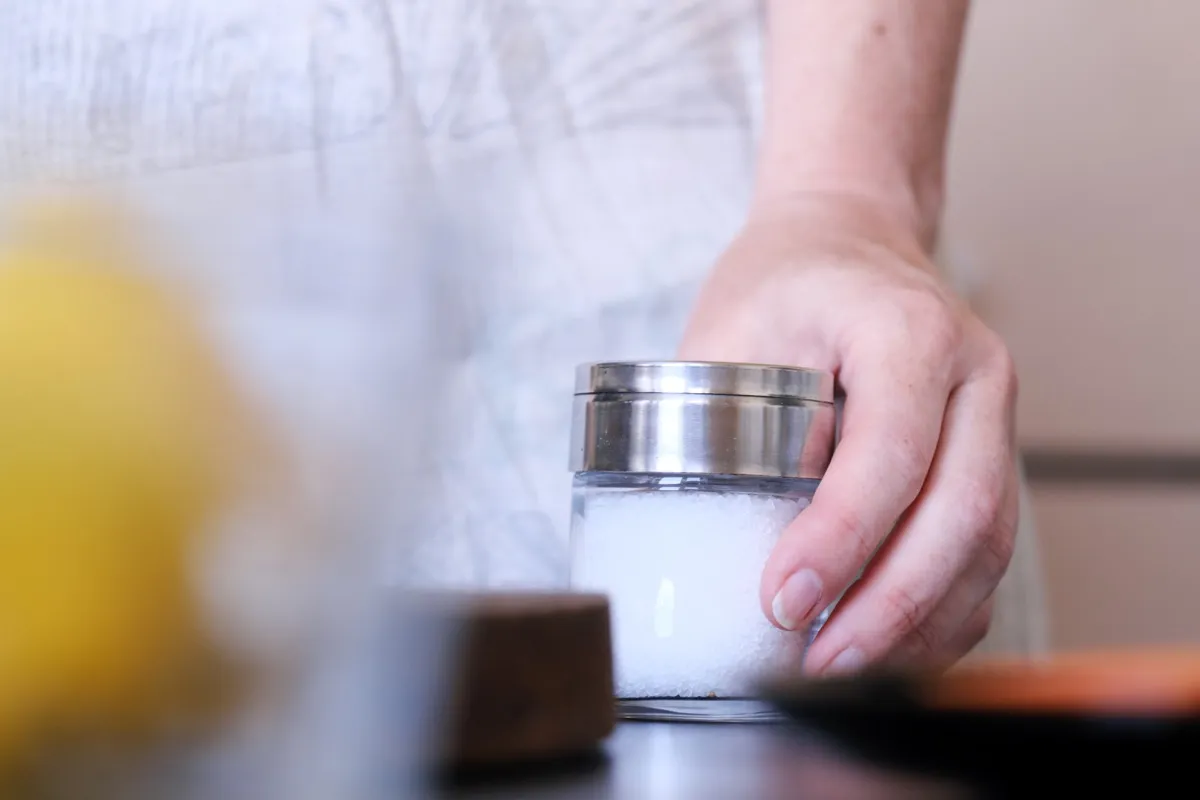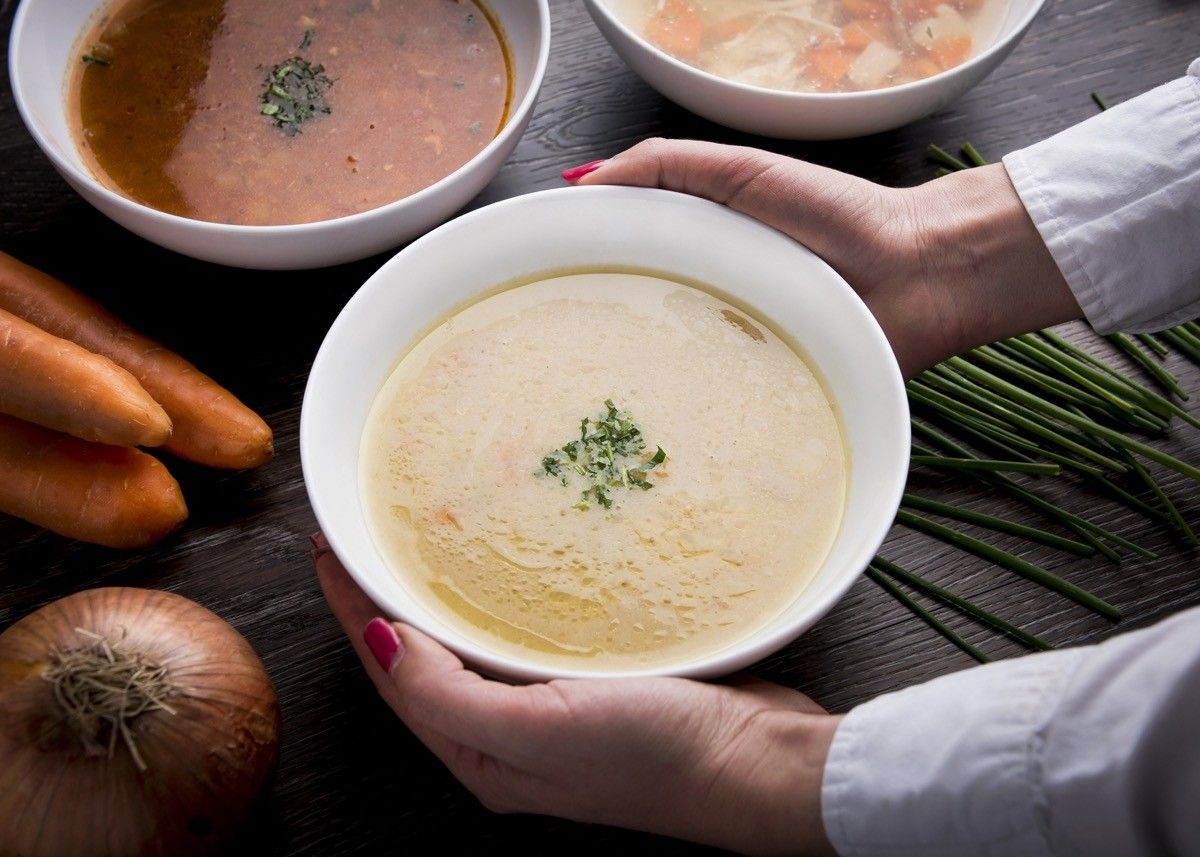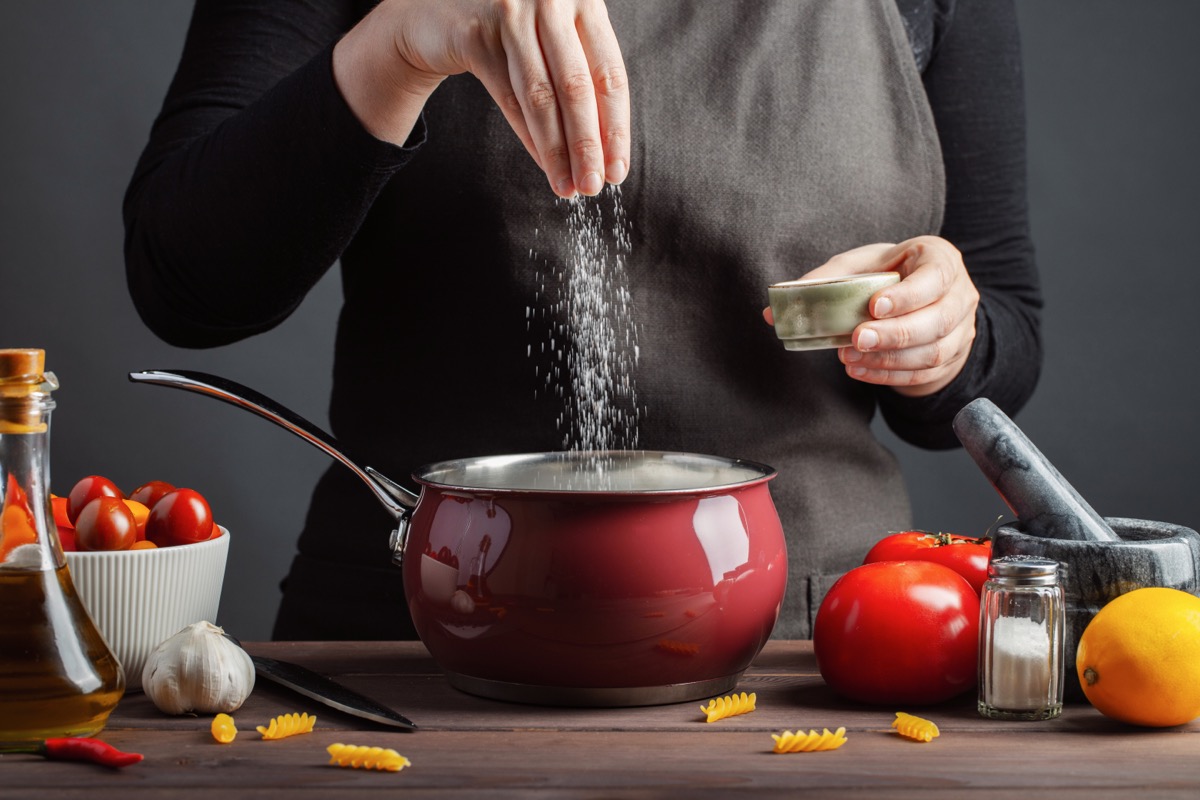This Food Increases Your Risk of Stomach Cancer
Every year, doctors diagnose over 25,000 new cases of stomach cancer, the fifth most common type of cancer worldwide. And while many factors may increase your risk of being included in that number, experts say one of them is related to your diet. Read on to learn which type of food is linked with an increased risk of stomach cancer, and why limiting your intake could help bring that risk back down.
READ THIS NEXT: This Popular Party Snack May Cause Colon Cancer, Experts Say.

Stomach cancer usually occurs when malignant cells develop in the inner lining of the stomach. Though anyone can develop this form of cancer, your risk is higher if you have a family history of stomach cancer or have any of the following underlying conditions: an infection of the bacteria Helicobacter pylori (H. pylori), certain inherited genetic disorders, pernicious aenemia, a history of stomach surgery, or obesity.
Certain demographic factors also appear to be at play. People over age 55 are at increased risk, as are men, who are twice as likely to develop stomach cancer compared to women. Your racial background also appears to influence your statistical risk. “Stomach cancer is more common in Black, Hispanic, and Asian people than in white people,” says the Cleveland Clinic.
Finally, tobacco use and drinking alcohol are significantly linked to your stomach cancer risk. Limiting your intake or forgoing their use entirely can greatly lessen your odds of developing stomach cancer.
READ THIS NEXT: Eating This One Thing Can Cut Your Cancer Risk in Half, New Study Says.

In addition to these risk factors, experts say your diet can impact your risk of stomach cancer. “Eating a diet high in salt has been linked to an increased risk of stomach cancer,” says the American Society of Clinical Oncology (ASCO). “This includes foods preserved by drying, smoking, salting, or pickling, and foods high in added salt.”
The World Cancer Research Fund International explains the connection: “Scientists believe the increased stomach cancer risk from salt-preserved foods is because they contain a large amount of salt, which infuses the foods during the preservation process. Experimental research has shown that salt damages the stomach lining and causes lesions, which, if left to develop, can become stomach cancer.”

Salt is an important part of our diets—one that our bodies can’t do without. “It’s needed to transmit nerve impulses, contract and relax muscle fibers (including those in the heart and blood vessels), and maintain a proper fluid balance,” explains Harvard Health Publishing.
However, your body only needs a little bit of sodium to complete these essential functions, and most of us get more than we need through our diets. “Salt consumption is notoriously difficult to measure in this way because most of our salt intake is ‘hidden’ in foods without us being aware of it,” explains the World Cancer Research Fund. Their report “showed an increased risk of stomach cancer in people who have a preference for salty foods,” regardless of how much salt they reported eating. “This may be a better indicator of how much salt we’re actually eating, because our taste for salty foods adapts over time,” their experts note.
For more health news sent directly to your inbox, sign up for our daily newsletter.

To reduce the impact of this particular risk factor, limit your salt intake and eat fewer salt-preserved foods. The World Health Organization recommends eating fewer than five grams of salt daily—an amount which should enable your body to perform its essential functions without raising your risk of stomach cancer and other health conditions.
“If we are able to cut down on the amount of salt we eat, we could significantly reduce our risk of stomach cancer,” says the World Cancer Research Fund.
" Conservative News Daily does not always share or support the views and opinions expressed here; they are just those of the writer."





